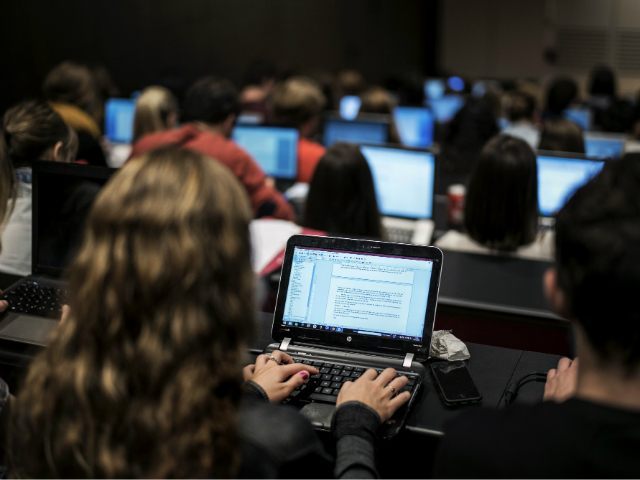Students, it’s time to dust off that binder and put the laptop on the shelf: it seems that the former is a better learning tool than the latter.
For a study published by the Association of Psychological Science, university students were subjected to a number of tests in order to discern the difference between those who hand write their notes and those who type them. While students with laptop computers took much more extensive notes, those wielding a pen took notes that were considerably more valuable.
The present research suggests that even when laptops are used solely to take notes, they may still be impairing learning because their use results in shallower processing. In three studies, we found that students who took notes on laptops performed worse on conceptual questions than students who took notes longhand. We show that whereas taking more notes can be beneficial, laptop note takers’ tendency to transcribe lectures verbatim rather than processing information and reframing it in their own words is detrimental to learning
The study’s three tests put the student groups in front of a series of TED Talks. In the first, they tested simple retention. While both laptop and notepad groups performed equally well in remembering cold data such as dates, the students employing paper notes showed considerably higher retention of the concepts that were taught. Even though the students with computers took far more notes, their reliance on simple dictation methods seemed to bypass the critical thinking processes that the brain requires to truly learn.
In the second test, the subjects were specifically instructed not to take notes verbatim, to see whether forcing the young adults to summarize and make conclusions would even the playing field between the two types of note-taking. Even so, students with computers had difficulty obeying the instructions. Once again, those who copied the most information directly performed the worst on the follow-up tests.
Finally, students were given a period of time to study their notes before review. Surely the greater amount of overall information would then push the digitally-assisted students to the front, right? Not even close. Even with time to review the material, the students who had taken handwritten notes still handily outperformed those aided by modern technology.
It turns out that it’s the way we are programmed that guides our ability to learn, and being forced to slow down and take more specific notes by hand creates a connection to the information that is reliably superior to tapping away at a keyboard. Add to that the increased risk of distraction by a computer’s multitude of other entertainment and social functions, and it seems that the best thing to send a student into a classroom with is the same thing we’ve been using for centuries.
Follow Nate Church @Get2Church on Twitter for the latest news in gaming and technology, and snarky opinions on both.

COMMENTS
Please let us know if you're having issues with commenting.